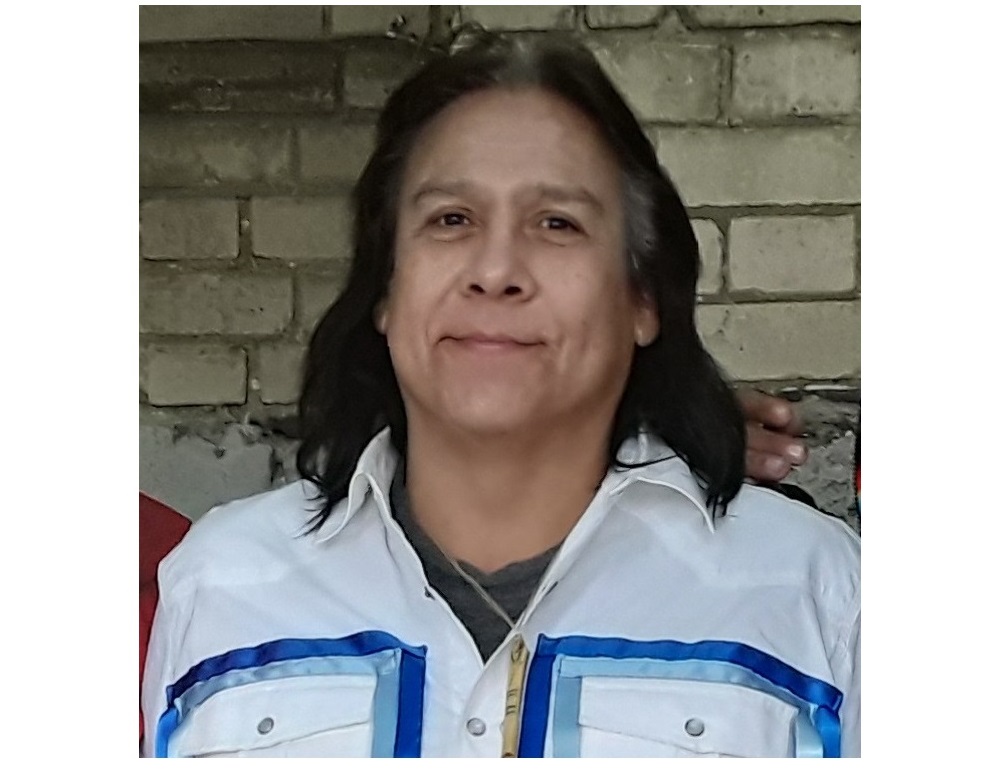
Kira’s Story
Using Their Experience to Help Others
For Kira Vallen, being a Two-Spirit/Trans* Traditional Helper at Anishnawbe Health Toronto, is not a job, it’s a way of life. Kira has worked at AHT since 2018 and facilitates the Two-Spirit Trans* Teaching Circle, a weekly meeting held in a donated pop-up shop in The Village at Church and Wellesley. In addition to the sharing circle, Kira is a Traditional Helper who does outreach and offers peer support to Two-Spirit First Nations, Métis and Inuit peoples.
Kira uses Traditional teachings and medicines to help Two Spirit LGBTQ clients to find a good path. Indigenous Two-Spirit LGBTQ people are over represented in the homeless population in Toronto, and are also at higher risk of experiencing violence and attempting suicide.
Kira speaks proudly about the circle, “The sharing circle was two years in the works for me, from getting the funding to starting meetings. Within the first six months, we surpassed our one-year goal. We celebrated our one-year anniversary this past December.” Kira goes on to say, “A common thing attendees say is that they don’t feel judged and they can speak freely. And when they do that it’s a safe place for them. They feel safe at that time that they get to share. The meetings help give them their Indigenous identity, makes them feel whole and they keep coming back.”
Kira is impressed with how the community has come together for the weekly meetings. “We received space from The Village business association and Toronto Police Services. We facilitate the program and the community comes in for meetings. Drinks and food comes from the local Starbucks so very little money is spent. It shows that you can have community, policing and business working together in a big way.”
When asked about how Kira’s clients are faring during the COVID-19 pandemic, “They really miss the Sharing Circle a lot, the activities, they call to ask when meetings will start again. I do go out and do one-on-one meetings, outside. I always take a mask and gloves. Yesterday, I shared a coffee with a client. The person was feeling isolated. They were in their apartment by themselves with no one to talk to. Another day, I took a client, who has agoraphobia, out shopping. That was a big step for them.”
To understand Kira’s commitment to the Two-sprit/Trans* community all you need to look at is Kira’s history. From the very young age of three, Kira knew they were Two-Spirit. Kira explains, “It was always there. The worst part of growing up was hiding it and going to extremes to hide it. My parents used to say ‘Why can’t you just be yourself’?” As Kira got older and started working in the male-dominated auto industry, in London, Ontario, they became a prisoner in their own body. Kira remembers, “To come out in a workplace that wasn’t ready for that, I became so stressed. I couldn’t work due to the harassment.”
In 2009, while in London, Kira was the first openly Trans person to seek shelter. No one would take them. Kira explains, “The only place that would take me was a Native Women and Children’s shelter but they would only take me for 30 days. They gave me a bus ticket to Toronto and I was put into a house with 24 Indigenous Trans women. I thought wow this feels like home. I’m accepted. They taught me lots.”
Kira first came to Anishnawbe Health for help after they had become addicted to hard drugs. Kira says, “My last high I couldn’t get arrested. The police didn’t want anything to do with me. I couldn’t get into detox. I couldn’t get into a psych ward. I was homeless and I couldn’t get the help I needed.” Kira continues, “I came to the doors of Anishnawbe Health on a Friday, was put into the hospital immediately and I was in treatment by Tuesday. I was accepted at AHT and they never gave up on me. That is why I got well and that is why I put so much into helping our clients because somebody did so much for me. This October, I’ve been clean seven years.”
For more information on how you can support clients and staff at Anishnawbe Health, please visit our campaign page here.
*In writing, using an asterisk at the end of “trans” is a way to use one shorthand expression to refer to a variety of identities that are incredibly diverse, but share one simple, common denominator: a trans* person is not a cisgender man or woman.

